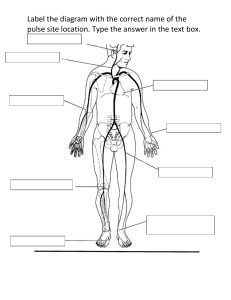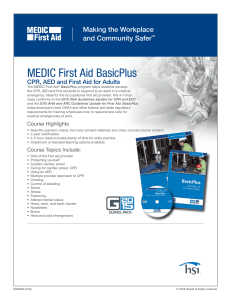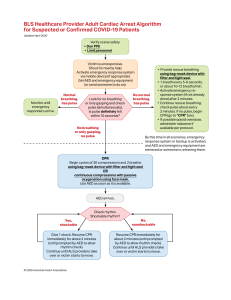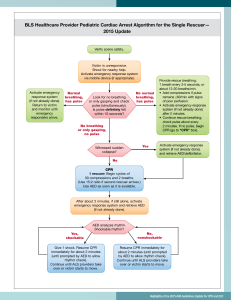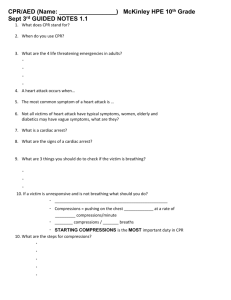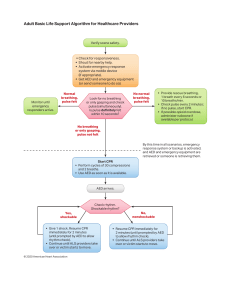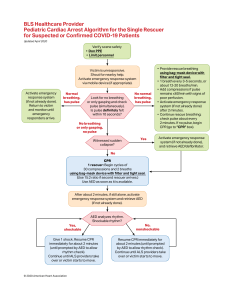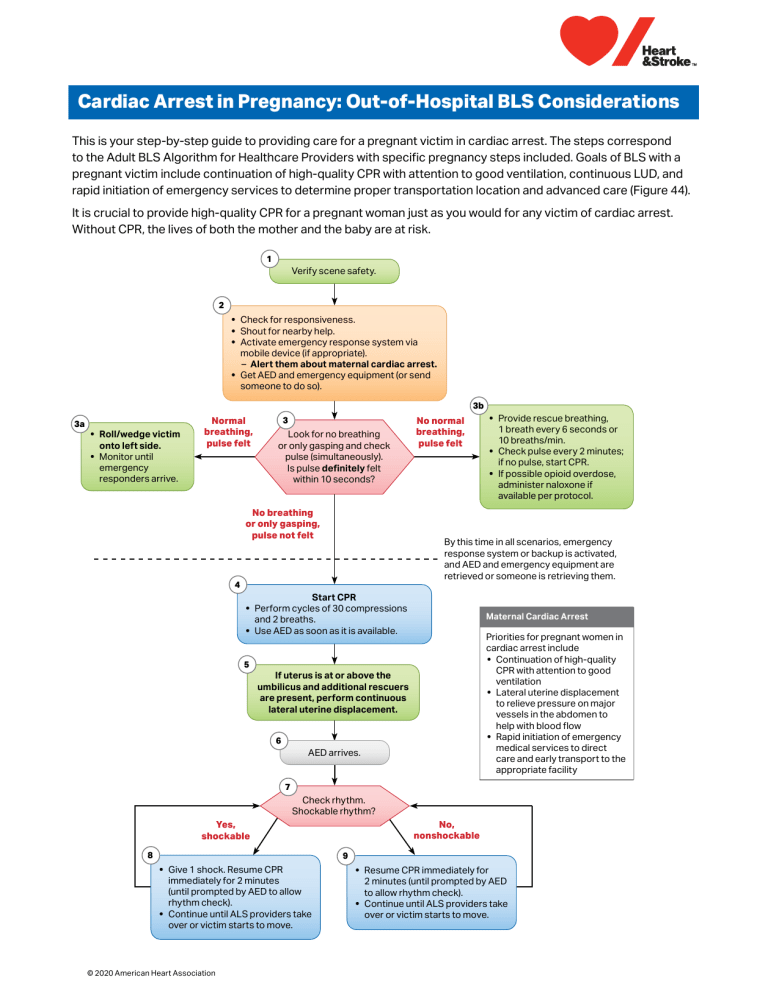
Cardiac Arrest in Pregnancy: Out-of-Hospital BLS Considerations This is your step-by-step guide to providing care for a pregnant victim in cardiac arrest. The steps correspond to the Adult BLS Algorithm for Healthcare Providers with specific pregnancy steps included. Goals of BLS with a pregnant victim include continuation of high-quality CPR with attention to good ventilation, continuous LUD, and rapid initiation of emergency services to determine proper transportation location and advanced care (Figure 44). It is crucial to provide high-quality CPR for a pregnant woman just as you would for any victim of cardiac arrest. Without CPR, the lives of both the mother and the baby are at risk. 1 2 3a • Roll/wedge victim onto left side. • Monitor until emergency responders arrive. Verify scene safety. • Check for responsiveness. • Shout for nearby help. • Activate emergency response system via mobile device (if appropriate). – Alert them about maternal cardiac arrest. • Get AED and emergency equipment (or send someone to do so). Normal breathing, pulse felt 3 Look for no breathing or only gasping and check pulse (simultaneously). Is pulse definitely felt within 10 seconds? No breathing or only gasping, pulse not felt 4 Yes, shockable Maternal Cardiac Arrest Priorities for pregnant women in cardiac arrest include • Continuation of high-quality CPR with attention to good ventilation • Lateral uterine displacement to relieve pressure on major vessels in the abdomen to help with blood flow • Rapid initiation of emergency medical services to direct care and early transport to the appropriate facility AED arrives. 7 Check rhythm. Shockable rhythm? • Give 1 shock. Resume CPR immediately for 2 minutes (until prompted by AED to allow rhythm check). • Continue until ALS providers take over or victim starts to move. • Provide rescue breathing, 1 breath every 6 seconds or 10 breaths/min. • Check pulse every 2 minutes; if no pulse, start CPR. • If possible opioid overdose, administer naloxone if available per protocol. By this time in all scenarios, emergency response system or backup is activated, and AED and emergency equipment are retrieved or someone is retrieving them. If uterus is at or above the umbilicus and additional rescuers are present, perform continuous lateral uterine displacement. 6 © 2020 American Heart Association 3b Start CPR • Perform cycles of 30 compressions and 2 breaths. • Use AED as soon as it is available. 5 8 No normal breathing, pulse felt 9 No, nonshockable • Resume CPR immediately for 2 minutes (until prompted by AED to allow rhythm check). • Continue until ALS providers take over or victim starts to move.
